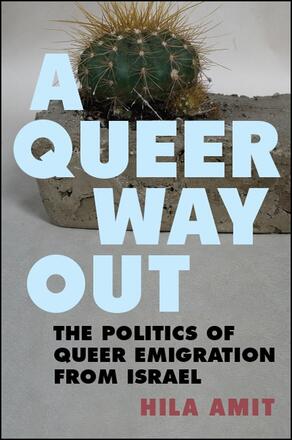
A Queer Way Out
The Politics of Queer Emigration from Israel
Alternative formats available from:
Argues that queer Israeli emigrants engage in a deliberately unheroic form of resistance to Zionism.
Description
Winner of the 2019 Association for Middle East Women's Studies Book Award
The very language of Zionism prizes the concept of immigration to Israel (aliyah, literally ascending) while stigmatizing emigration from Israel (yerida, descending). In A Queer Way Out, Hila Amit explores the as-yet-untold story of queer Israeli emigrants. Drawing on extensive fieldwork in Berlin, London, and New York, she examines motivations for departure and feelings of unbelonging to the Israeli national collective. Amit shows that sexual orientation and left-wing political affiliation play significant roles in decisions to leave. Queer Israeli emigrants question national and heterosexual norms such as army service, monogamy, and reproduction. Amit argues that emigration itself is not only a political act, but one that pioneers a deliberately unheroic form of resistance to Zionist ideology. This fascinating study enriches our understandings of migration, political activism, and queer forms of living in Israel and beyond.
Hila Amit received her PhD in gender studies from SOAS University of London.
Reviews
"By conceptualizing queer Israeli citizens' vulnerability not as an ontological condition but as the precondition for political mobilization and resistance, A Queer Way Out contributes powerfully to the study of queer migrant vulnerability as a critique of homonationalist forms of pinkwashing, as well as to emergent discussions within feminist and queer theory about vulnerability as a tool of political critique." — GLQ: A Journal of Lesbian and Gay Studies
"A Queer Way Out is more than an ethnographic examination of a small yet significant migratory context, not in quantitative terms but in qualitative ones. The book is written in an accessible language and is thus likely to resonate with a wide audience, including novice readers … By stretching the scope of queerness beyond sexuality paradigms, [Amit's] work offers an innovative queer analysis at each of the micro, meso, and macro levels." — Feminist Encounters